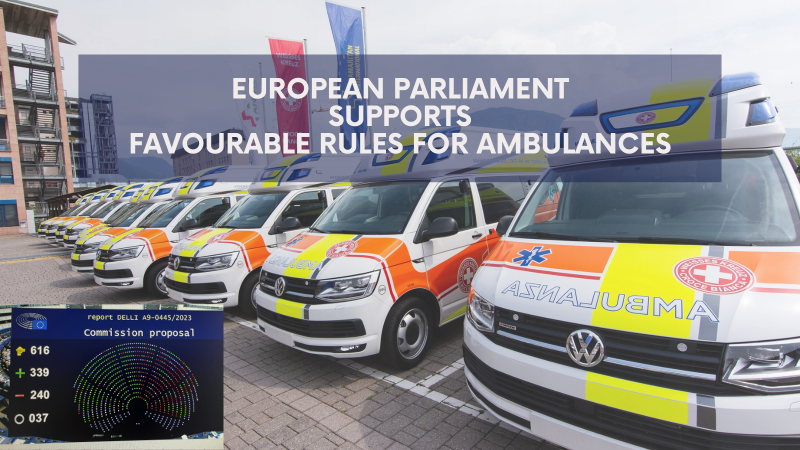European Parliament adopts Position on Driving Licences Directive
Posted on |
On 28 February, the European Parliament adopted its First Reading position on the Revision of the Driving Licences Directive. Samaritan International strongly welcomes the result in view of the agreed rules for ambulances.
Whereas other issues, such as regular medical testing or minimum age, have taken the spotlight in the public debate, Samaritan International had advocated the need for European rules for ambulances above 3,5 tonnes from the beginning of the political process.
Different national or even regional rules not only create legal uncertainty for cross-border emergency calls, but also impose high thresholds for civic engagement where C-licences are required.
Samaritan International therefore, strongly welcomes that the European Parliament agreed to use the revision of the Driving Licences Directive to enable the driving of ambulance up to 4,25t with a regular B-licence. A decision, which will have no negative impact on road safety, as the vehicles are already manufactured for such a mass, but on the other hand was necessary to continuously ensure effective first responses and medical care.
Due to advances in medical care equipment, ambulances have been getting heavier and often surpass the 3,5t weight limit. Since they are often driven by volunteers, who could be discouraged or deterred if they need to get a costly C-licence first, it is important to keep the entry thresholds low without compromising on safety, to ensure sufficient coverage.
Samaritan International also welcomes the mandatory First-Aid knowledge in the theoretical test, which is a first step in the good direction. However, theoretical knowledge cannot make up for practical training. First-Aid measures are usually required during high-stress situations, where secure and quick actions are needed. Therefore, a comprehensive First-Aid training, including CPR should be required, as is already the case in some Member States.
Samaritan International will continue to engage in the legislative process, advocating for support to civic engagement and clear rules for ambulances all across the EU.
Next steps
The European Parliament and the Council will negotiate their positions in the so-called trilogues. Once they have reached and adopted a compromise agreement, it has to be transposed into national law within two years in all Member States.

